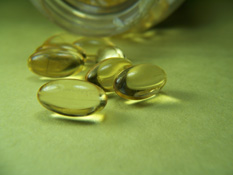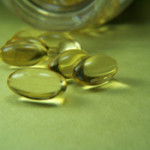 Unless you are blessed with the most remarkable genes and a lifelong supportive healthy environment, you probably can benefit from these 5 natural anti inflammatory supplements with anti inflammatory benefits. These can offset genetic vulnerabilities and environmental challenges (not just social and psychological, but also physical, chemical, and biological stressors) that can otherwise actualize disease potential into real diseases.
Unless you are blessed with the most remarkable genes and a lifelong supportive healthy environment, you probably can benefit from these 5 natural anti inflammatory supplements with anti inflammatory benefits. These can offset genetic vulnerabilities and environmental challenges (not just social and psychological, but also physical, chemical, and biological stressors) that can otherwise actualize disease potential into real diseases.
Here are 5 important items that are not enough, but they are a great start:
1. Multivitamin/Multimineral supplement: Especially with the epidemic of type 2 diabetes in our modern population, a good MVI can cut the risk of infections. This just helps replace some of the nutrients lost in the urine from the high blood sugar effects.
2. Magnesium: Most of us do not get enough in our daily diet. Low or marginal magnesium is a problem for people prone to muscle cramping and spasms, insomnia, anxiety, and even some heart arrhythmias. Ask your doctor for a red blood cell magnesium level test, not just a serum test.
3. Vitamin D3: Most of us do not make enough or eat enough vitamin D in our daily outdoor activities (you need skin exposure without sun blocks) or diet. Low vitamin D has been linked in population studies to a wide range of health problem risks, from certain cancers to type 1 autoimmune diabetes to high blood pressure to osteoporosis to even autism. Demand a blood test for vitamin D levels. Just assuming that you are taking enough is risky – absorption varies a lot, especially if you have any condition that impairs gut function. And recheck the level after a couple of months if you change your diet, add medications or other supplements.
4. Probiotics: A growing amount of research tells us that the gut is a major player in immune system health. Mess up the flora of your gut with poor diet and/or antibiotics, and you are more likely to get all sorts of immune-system related problems. These conditions include autoimmune disorders like arthritis, inflammatory bowel disease and Crohns disease, and cancers.
5. Fish oils: Omega 3 fatty acids from fatty fish like wild salmon, sardines, mackerel, anchovies, and others have powerful anti inflammatory effects. They can help your gut heal and support the benefits of the probiotics that you take. If you hate fish or can’t find a tolerable liquid or capsule form of fish oil or are a strict type of vegetarian, then at least use flax oil supplements. Omega 3 intake may help stabilize mood in higher doses for people susceptible to bipolar disorder or certain depressions.
Always give a nutritional program about 3 months to decide if it is helping you. Nutrients are not drugs, and they take time to repair your body rather than just suppressing symptoms the way drugs usually work. And, when available, get blood or other specialized tests to know if your supplements are doing a good job. Not taking enough and then deciding they don’t help is a waste of time and money. Taking too much is also dangerous – so work with a knowledgeable doctor to sort this out for your unique situation.
Want more? Check out the Inflammation Advisor’s book Inflammation 101 here. And pick up a copy of our popular anti inflammatory recipe book while you’re at it – get your copy of our companion book – Eating Clean Recipes for Inflammation.
Related articles across the web




